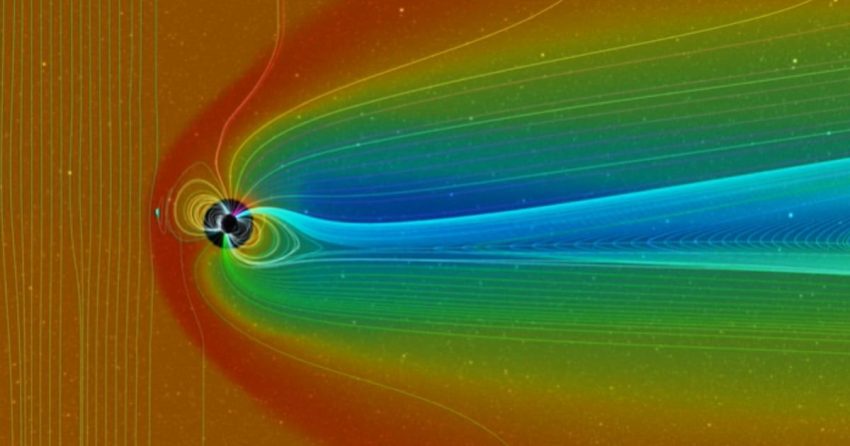Understanding Earth’s Magnetic Field Shifts
Researchers have developed a unique way to experience the Earth’s magnetic field through an audio-visual representation of its historical changes. By using data from the European Space Agency (ESA), scientists were able to transform readings from 41,000 years ago into a sound that captures the eerie transformation of the Brunhes-Matuyama reversal. This event occurred around 780,000 years ago and marked a significant shift in the planet’s magnetic poles.
Geophysicists Sanja Panovska and Ahmed Nasser Mahgoub from the Helmholtz Centre for Geosciences (GFZ) created a global model of the Earth’s magnetic field during this phenomenon. Their research was based on ancient magnetic data found in sediments from global drill cores. This data provided insights into how the magnetic field changed over time and how it affected the planet.
A Unique Audio-Visual Experience
To bring this data to life, Maximilian Arthus Schanner and sonified by Klaus Nielsen and Schanner created a visual and auditory experience. This process involved translating the magnetic field data into sound, allowing listeners to “hear” the changes that took place. The result is a haunting and unusual auditory representation of the Earth’s magnetic field shifting.
It is important to note that the magnetic and geographic poles do not always align. Over time, they can experience temporary reversals or flips. During the Brunhes-Matuyama reversal, the magnetic north was as far south as the equator. This phenomenon highlights the dynamic nature of the Earth’s magnetic field and its potential to change over long periods.
NASA has noted that while the magnetic field has weakened by about 9 percent over the past 200 years, paleomagnetic studies show that it is actually the strongest it has been in the past 100,000 years. It is twice as intense as its million-year average, indicating that the field has fluctuated significantly throughout history.
Studying the Magnetic Shift
Scientists have observed that the poles can flip over hundreds or thousands of years, with intervals ranging from 10,000 years to 50 million years or more. The event 41,000 years ago, known as the Laschamp event, was a temporary reversal. Researchers identified this flip by studying the magnetization of sediment cores from that time.
The data revealed that when the magnetic poles became unstable, they did not simply swap places. Instead, they split into blobs and merged at random, staggered spaces. This resulted in multiple magnetic polarities existing at one location simultaneously. This complex behavior was captured in the visual animation, providing a clear representation of the magnetic field’s instability.
Past Influences of Magnetic Switches
During the time of the Brunhes-Matuyama reversal, early human ancestors lived through this phenomenon. It is believed to have lasted for 22,000 years. There may have been unknown consequences faced by ancient relatives and other life forms on the planet. The magnetosphere, which protects beings from cosmic and solar radiation, would have been disrupted during the switch.
Experts are still uncertain about the exact influences of this event. However, one could look at the climate for an answer. Anthropological data from the time were scarce, so geologists relied on the effects etched into the flow of solidifying lava across the Earth by the Brunhes-Matuyama.
An Eerie Geological Experience
The Earth’s magnetic field extends up to the atmosphere and is generated by a layer of changing liquid metals beneath the planet’s surface. Various technologies have harnessed this process, protecting inhabitants from extreme cosmic and solar radiation. Ice cores, sediment samples, and marine specimens formed the data used to construct a pre-flip model and animate the reversal.
The sonic aspect of the project included three violins, three cellos, and a synthesizer that mirrored the fields being in flux. While the initial sound was pleasant, there was a drastic shift in tone during the event, reflecting the chaotic nature of the magnetic field’s transformation. This unique experience offers a deeper understanding of the Earth’s magnetic field and its historical shifts.
